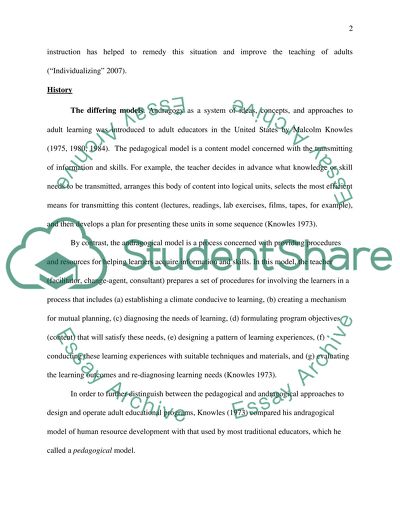Cite this document
(“Andragogy and Pedagogy Essay Example | Topics and Well Written Essays - 2500 words”, n.d.)
Retrieved de https://studentshare.org/miscellaneous/1499597-andragogy-and-pedagogy
Retrieved de https://studentshare.org/miscellaneous/1499597-andragogy-and-pedagogy
(Andragogy and Pedagogy Essay Example | Topics and Well Written Essays - 2500 Words)
https://studentshare.org/miscellaneous/1499597-andragogy-and-pedagogy.
https://studentshare.org/miscellaneous/1499597-andragogy-and-pedagogy.
“Andragogy and Pedagogy Essay Example | Topics and Well Written Essays - 2500 Words”, n.d. https://studentshare.org/miscellaneous/1499597-andragogy-and-pedagogy.


